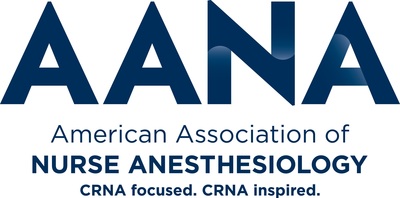Subjects: VET, AVO, DEI
AANA President Calls on Congress to Reject Legislation that Prevents Veterans from Accessing Quality Care
PARK RIDGE, Ill., March 9, 2022 /PRNewswire/ -- The president of the American Association of Nurse Anesthesiology (AANA) issued the following statement in response to a bill designed to prevent Certified Registered Nurse Anesthetists (CRNAs) from practicing to the full extent of their licensure in the Veterans Health Administration (VHA). AANA President Dina Velocci, DNP, CRNA, APRN, is calling on Congress to reject this "dangerous legislation and support our veterans' access to the highest quality care." Full statement:
"Today, allies of the American Society of Anesthesiologists introduced a bill to deny, delay, and disrupt veterans' access to care in the middle of a public health emergency. In a direct attack on CRNAs, who have been serving on the front lines of the COVID-19 pandemic, the bill would limit the ability of the Veterans Administration (VA) to allow CRNAs to provide care to veterans. The bill would benefit physician anesthesiologists at the expense of our veterans and in denial of all available evidence and data. Reports from the VA Office of the Inspector General have shown dozens of facilities citing shortages of anesthesia staff, and on the ground evidence shows that overly onerous supervision requirements have caused delays and denials of care for veterans.
AANA strongly opposes this misguided legislation that would only serve to hurt veterans' access to care. All available evidence shows that CRNAs working independently are the most cost-effective method of anesthesia delivery and the safest, which is why CRNAs are able to practice independently in every branch of the military and why 49 states do not require the involvement of physician anesthesiologists in CRNA practice. This is why multiple Veterans Service Organizations (VSOs) supported CRNA full practice authority in 2016 and why several VSOs have testified in support of national standards of practice that would allow CRNAs and other providers to practice to the top of their scope.
The move to eliminate CRNA full practice authority within the VA is being done without the health and wellbeing of our nation's veterans in mind. While CRNAs provide the most cost-effective and timely access to highest quality care, we do recognize the need to have both physician and nurse anesthesiologists providing anesthesia collaboratively to our veterans, moving away from antiquated delivery models that have one qualified provider overseeing another qualified provider. Any model that unnecessarily restricts CRNA practice will only increase costs, delay care, and adversely affect veterans.?At a time when the healthcare system is seeing overwhelming levels of retirements and burnout, stressing the workforce, and limiting care, the ASA and their allies are seeking to further limit care and put veterans at risk for their own benefit.
This is an unconscionable bill meant to slander nurses and hurt veterans."
More than 1,100 CRNAs currently work in the VA. CRNAs have historically provided much of the anesthesia delivery to active-duty military in combat arenas since World War I and predominate in veterans' hospitals and the U.S. Armed Services, where they enjoy full practice authority in every branch of the military. CRNAs have been in high demand during the pandemic, due to their skill in ventilator and airway management, as well as anesthesia and pain management. Information on CRNA safety and cost efficiency is available at anesthesiafacts.com/the-research.
SOURCE American Association of Nurse Anesthesiology
These press releases may also interest you
|
News published on and distributed by:




